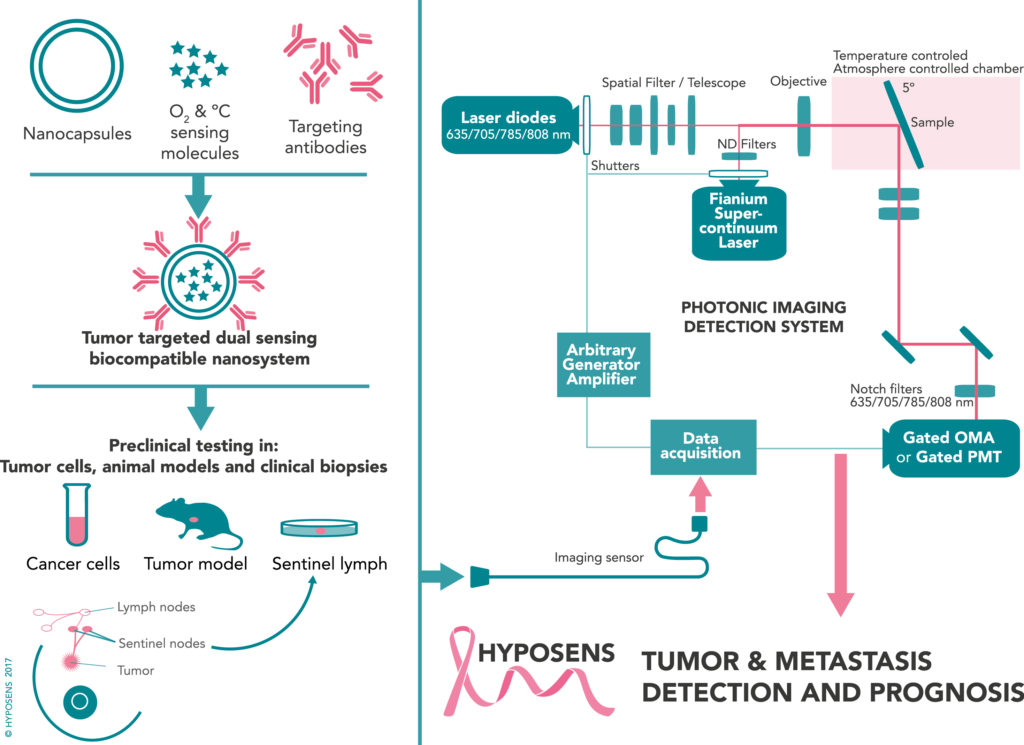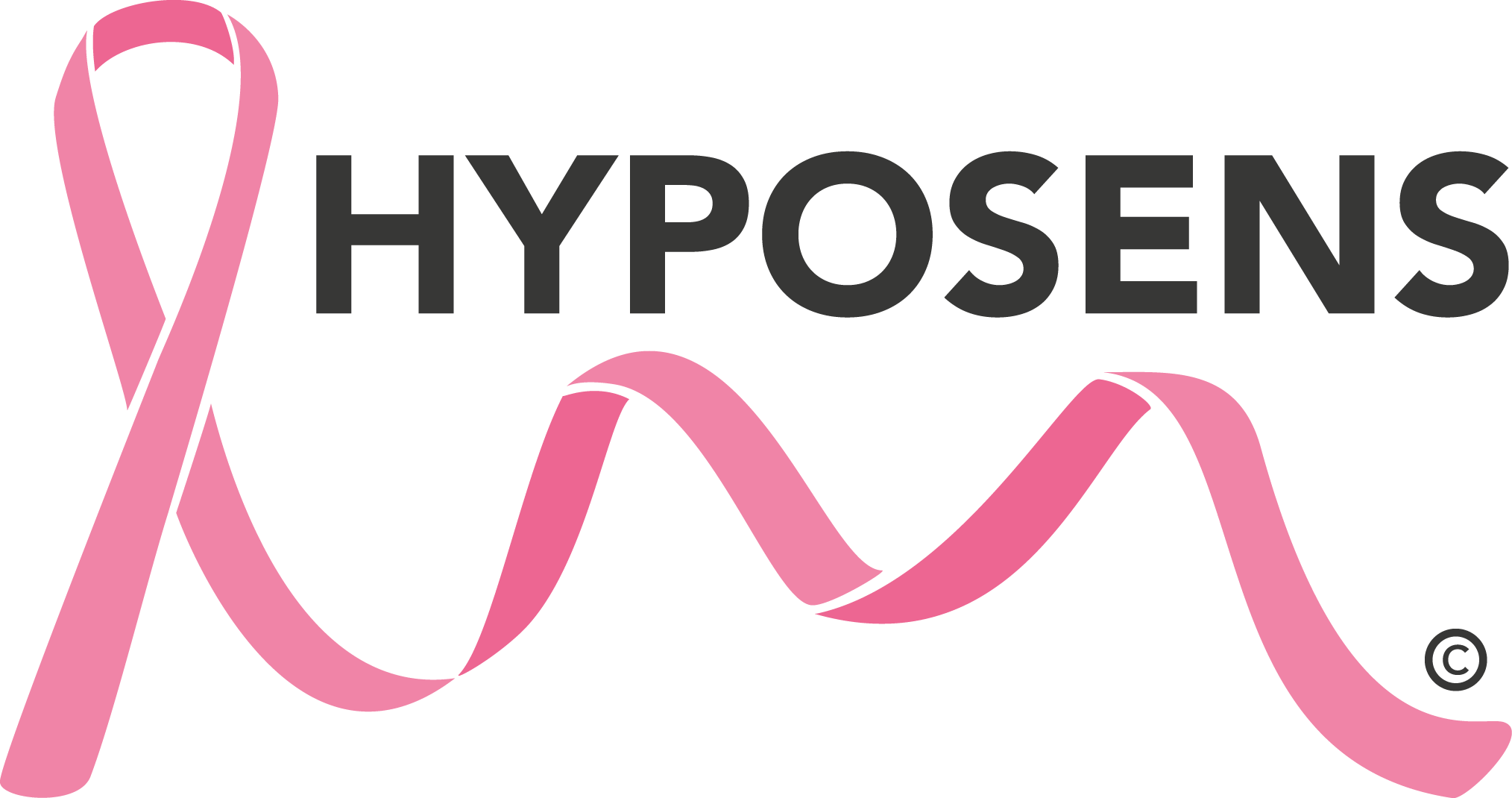When we talk about metastatic breast cancer, we refer to breast cancer that has spread to other parts of the body. In turn, cancer can be recurrent, meaning cancer that has reappeared in the breast of the original diagnosis, in the other breast, or in the chest wall after a certain period in which the cancer was not detected. Both are considered types of advanced-stage cancer and are responsible for 90% of deaths.
In breast cancer, metastasis occurs mainly through the lymphatic system. The lymph nodes closest to a tumor are called sentinel lymph nodes (SLN) and are the most likely route for cancer cells to enter the lymphatic system.
How is metastatic breast cancer diagnosed?: Sentinel lymph node biopsy
An early and accurate diagnosis is crucial for patient stratification and to provide appropriate treatment that will result in increased survival. The current standardized protocol to detect this type of cancer is called “sentinel lymph node biopsy (SLNB)” and consists of removing a biopsy of the SLN to analyze if it contains cancer cells.
However, it is a complicated diagnosis that requires invasive surgery and highly qualified professionals (surgeons, radiologists, pathologists). The results obtained from the biopsy can provide a false negative response (5-10%), and the analysis of samples can take several days/weeks, negatively impacting patient well-being. Additionally, the reagents injected for sentinel node localization, prior to surgery, can cause side effects in patients.
HypoSens: The Alternative to SLNB
There is, on one hand, a constant trend towards personalized medicine to offer the best treatment to each patient, and on the other, the need for more precise, more economical, safer diagnoses that provide greater well-being to the patient. In this sense, HypoSens aims to improve the diagnosis of breast cancer metastasis, addressing these needs.
The innovative HypoSens methodology is in the development phase and aims to validate, pre-clinically, clinically, and industrially, a diagnostic system capable of specifically detecting cancer cells in lymph nodes, monitoring metabolic parameters in real-time that correlate with cancer prognosis.
This methodology is based on the administration of bio-compatible nano-capsules that specifically anchor to metastatic tumor cells thanks to their surface antibodies and, through a dual system of internal sensors, allows the determination of temperature and oxygen using an external imaging device. These analyzed metabolic parameters correlate with cancer aggressiveness and facilitate correct patient stratification.

Thus, HypoSens will offer a rapid, low-cost (due to its ease of use), safe (as it does not use radioactive substances), high-resolution and sensitive diagnosis that is much less invasive than surgery.
In this way, the HypoSens system will improve the specificity of diagnosis, facilitating better breast cancer treatment and reducing costs associated with its metastatic progression.
Beyond Breast Cancer: Improving Early Diagnosis of Other Tumors
Due to the high versatility of the diagnostic system, HypoSens will allow, in the future, the detection of other cancers that currently also use the SNLB method, such as colon, gastric, or renal cancer, among others, elevating its impact in the field of oncology. This will be possible thanks to the exchange of antibodies present in the nano-capsules, replacing them with those specific to each cancer.
Want to Know More?
The European HypoSens project is funded by the European Union through the Horizon 2020 program under grant agreement No. 732794 and brings together a group of companies (FUNDITEC – installed at the Madrid Scientific Park Foundation -, Obelis, BCB Informatics and Control, Knowledge Innovation Market), universities (Sofia University “Saint Kliments Ohridski”, University of Albania) and technological centers (LEITAT, Max Planck Institute for Polymer Research, TECHNION), along with the Rioja Health Foundation.
You can find more information on the HypoSens website.













































